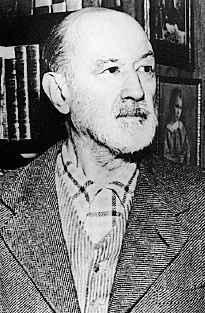Biography: Charles Ives (1874–1954)

Charles Ives was the son of a Civil War military bandmaster and music teacher from Danbury, Connecticut, near New York City. Ives senior was an extraordinary character who enjoyed musical games such as playing two tunes simultaneously in different keys. His father’s unconventionality — and his association with popular music — left a lasting impression on Charles.
Ives was a church organist as a teenager, and then went on to Yale, where he was a popular undergraduate (with a D+ average). He absorbed everything that his professor, the eminent composer Horatio Parker, had to teach him. But the American musical climate in the 1890s was basically hostile to modern trends; Parker wrote in a tame, traditional style. For Ives, this was not only dull but somehow also unmasculine. His vision was of a much more vigorous, rough-
When he got his B.A. he hedged his bets and took a job in insurance as well as another church organist position. After a few years he relegated music entirely to his spare time, while pursuing a very successful and innovative business career during the day. He seldom mixed with musicians and for years made little effort to get his works performed or published.
All the while Ives was developing his unique mystical notions about music, which have been linked to nineteenth-
Ives’s late years were clouded by pathos, for after 1920 he gave up music almost entirely due to discouragement and bad health. He also sometimes tinkered with his old music to make it appear even more revolutionary than it was — though the music as he originally wrote it still amazes music historians. For his last thirty years Ives lived in quiet affluence with his wife, Harmony, the sister of a college friend — he had taken her to his junior prom. Harmony seems to have had a strong influence on her husband’s ideas about music and life. They lived long enough to see his music admired first by a growing number of American musicians and then by the public at large.
Chief Works: For orchestra, four symphonies and the Holidays Symphony, several “Orchestral Sets,” Central Park in the Dark and The Unanswered Question ◼ Concord Sonata for piano (movements entitled “Emerson,” “Hawthorne,” “The Alcotts,” “Thoreau”) ◼ Variations on “America” for organ (written at age seventeen; best known in its arrangement for orchestra) ◼ Chamber music, much of it programmatic ◼ Church music, choral music, and important solo songs, among them “General William Booth enters into Heaven”
Encore: After Orchestral Set No. 2 and The Unanswered Question, listen to Putnam’s Camp, The Fourth of July.
Image credit: Bettmann/CORBIS.